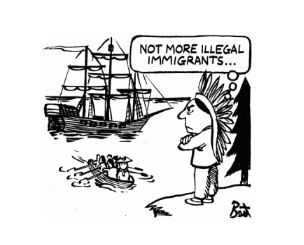by Fay Alexander | Nov 21, 2021 | Fay's views and news
Due to the COVID global pandemic, the world was put on hold in 2020 and that included big plans in the USA and the UK for celebrations and ceremonies commemorating the 400th Landing of the Mayflower Pilgrims on November 11, 1620. Some events were converted to virtual ones online as possible. Otherwise this year, some events at Plymouth, Massachusetts were finally realized.
Here is a link to the Plymouth 400th Celebration on Oct 5, 2021, at the Waterfront. Included are a diversity of cultures, a Wampanoag descendent giving prayers in the Wampanoag language, other indigenous leaders, a reenactment of the Landing, and a roll call of those arriving on the Mayflower and honoring those who died in the first year. Dr. Paul Jehle of American Pilgrimage 400 hosts the proceedings.
by Fay Alexander | Nov 21, 2021 | Fay's views and news
Though history between Europeans and Indigenous peoples of the New World is complicated and often quite sad, at least there was one rare moment in that history that shines a little brightly concerning the Wampanoag Tribe and Plymouth colony.
Here is a good History Channel piece, Why the Wampanoag Signed a Peace Treaty with the Mayflower Pilgrims, that summarizes the peace accomplished and the alliances forged between the two groups and gives the background that led to this alliance.
“The peace accord, which would be honored on both sides for the next half-century, was the first official treaty between English settlers and Native Americans, and a rare example of cooperation between the two groups.”
“Despite periodic tensions, peace between the two groups survived until after Ousamequin’s [Massasoit’s] death in 1661, making the 1621 treaty the only one between Native Americans and English colonists to be honored throughout the lives of all who signed it.”
by Fay Alexander | Nov 11, 2019 | Fay's views and news

Immigrants or Colonists?
A lot of debate and passion is offered every Thanksgiving season in the USA about whether the Pilgrims should be remembered in any kind of noble way. Didn’t they help lead the white European invasion of Native American culture and sovereignty? Or, were they persecuted refugees looking for a safer land where they could be free, like many immigrants in the world today?
This Thanksgiving lesson for English learners (usually immigrants themselves) includes the above cartoon’s humorous take on the Native American view of the Pilgrims’ arrival in the New World and echoes the debates of our modern headlines.
In this interview with the author of The Mayflower: the Families, the Voyage, and the Founding of America, Rebecca Fraser, says:
“As I was writing this book, the plight of refugees coming from the Middle East and Africa began to be very visible in Europe.
The parallel for me was that a lot of these people are like the Pilgrims – many had professional qualifications in their own countries.
Today’s refugees are surgeons and doctors and lawyers who have nothing to show their status in their home country. One of the most important Pilgrim leaders was an ex-diplomat who descended from a long line of members of Parliament, and many others came from wealthy families…
But the downside of Leiden was that the Pilgrims had to abandon their homes and work for Dutch cloth manufacturers who exploited them. Spending 12 hours at their looms was normal.
And like most refugees, they were living in pretty unpleasant circumstances because they had very little money.”
Fraser goes on to address the question of the Native Americans and the Pilgrims’ relationships with them:
“You can’t attribute the abuse of native peoples for centuries to the Pilgrims. The first generation of colonists were very respectful of their new neighbors and also very dependent on them.”
In this day and age, the best way to know is to listen to the voices of those who made the journey. We try to listen to the views of our countrymen, and to the views of refugees and immigrants. One way to hear the voice of the “Pilgrim Fathers” and their motives for coming to the New World is to read the arc of their story in One Candle’s Light: The Thanksgiving Story You Never Knew.
by Fay Alexander | Sep 24, 2019 | Fay's views and news
We are pleased to announce that this website for One Candle’s Light, the historical novel about the Pilgrims’ journey from England to Holland and then the New World, has been updated and re-designed as of July 2019.
This upgrade includes a valid security certificate, a mobile friendly version and direct sales of the book online. Order paperback copies of Fay’s book from the website for $25.95, shipping included by clicking here.
New and Used paperback copies are also available on Amazon for various prices and from various booksellers, including our stock of new copies of Fay’s book under the name “Pilgrim Fathers,” for $26.35 plus $3.99 shipping.
(If you are in the Gainesville, Florida area, Fay’s book can be checked out at the Alachua County Library District and a copy will be available to purchase at Book Gallery West. Ask for the book by title/author.)

